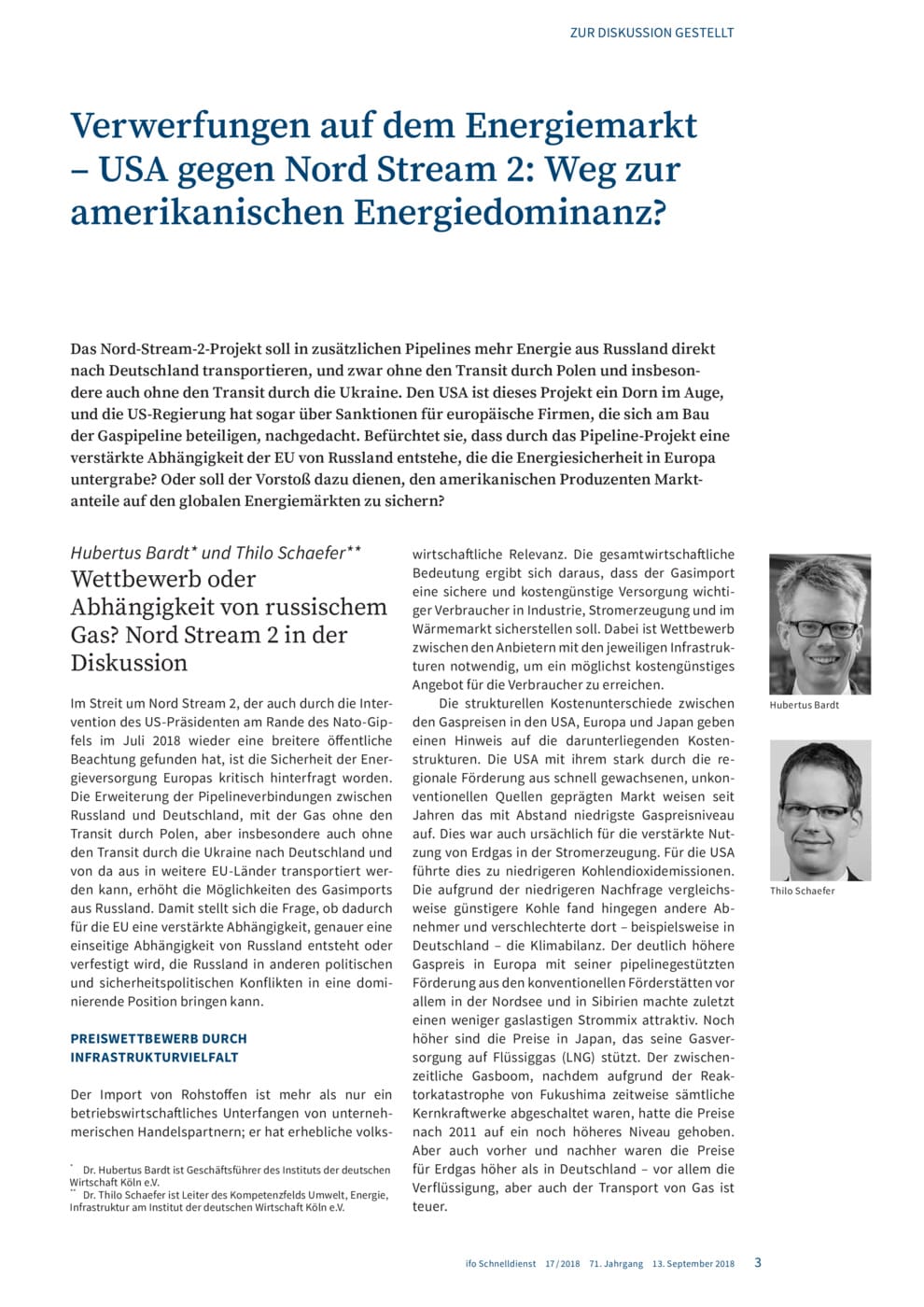Upheavals in the Energy Market – USA Opposes Nord Stream 2: the Path to American Energy Dominance?
ifo Institut, München, 2018
ifo Schnelldienst, 2018, 71, Nr. 17, 03-14

The Nord-Stream 2 project is supposed to transport more energy from Russia directly to Germany without transiting via Poland and the Ukraine. This project is a thorn in the USA’s side and its government has even considered imposing sanctions on European firms that participate in constructing the gas pipeline. It fears that the pipeline will make the EU more heavily dependent on Russia, which would undermine energy supply security in Europe. Or is the attack aimed at securing US producers market share in the global energy markets? Hubertus Bardt and Thilo Schaefer, Institut der deutschen Wirtschaft, Köln, show that Germany’s current energy supply can be described as broadly diversified. Although Russian gas delivered via pipeline does account for a third of Germany’s gas market, it accounts for less than 7% of its primary energy usage. Supply security is present despite the comparatively high level of dependency, since both trade partners are mutually dependent. This is the case because revenues from Russia’s gas revenues to Germany and Europe are very important to Russia’s state budget. This establishes good conditions for stable continuity in deliveries. The implications for Poland and the Ukraine are more critical, since both countries have to reckon with falling transit fees. André Wolf, HWWI, argues in favour of the advantages of using Nord Stream 2, despite pressure from the USA. The project not only implies significant cost savings, it also enables Germany to maintain economic relations with Russia, even in times of growing political alienation between Russia and the West. Georg Zachmann, Bruegel, sees uncertainty over developments in import demand for natural gas in the EU. As import demand rises, both Nord Stream 2 and liquid gas could help to secure Europe’s supply. If demand falls Europe could forego Nord Stream 2 and the drawbacks that accompany it. For this reason it would in the common interest of the EU states to postpone any decision over the construction of Nord Stream 2 until there is greater clarity over the EU’s future demand for natural gas. For Kirsten Westphal, Stiftung Wissenschaft und Politik, Berlin, the upheavals in the energy markets also reflect growing strategic competition and rivalry. Germany and the EU could be caught up in the friction between Russia and the USA and lose their globally sensitive position. Too much attention is being paid to Nord Stream 2, which is blinding us to Europe’s shrinking scope for action. Its security policy problems will not be solved by constructing the pipeline, or by halting construction of it.